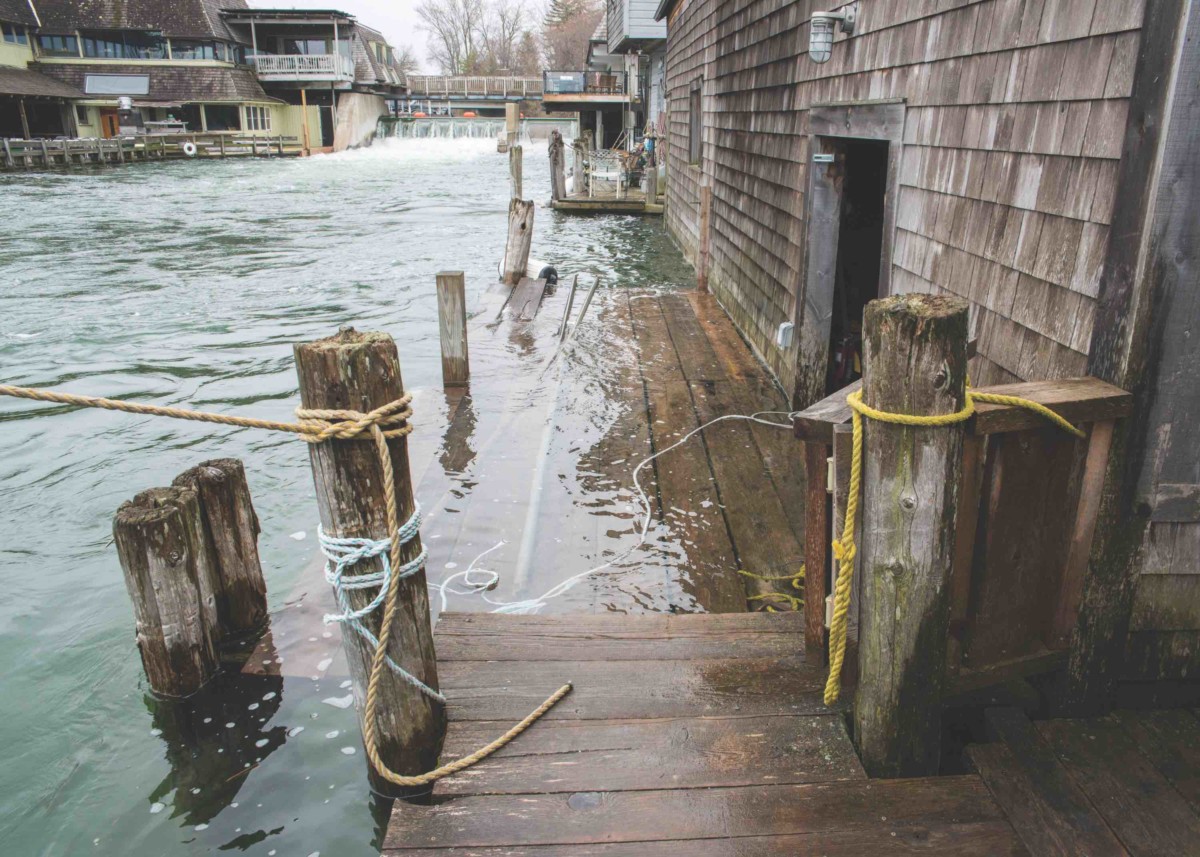Leland Fishtown shanties rising—$1.65 million still to be raised
Photo by Meggen Watt Photography, May 2019
From staff reports
After a year of high water, seiches, and the Leland river seeping into the old wooden shanties in Fishtown, the historic village is beginning to get the makeover it needs. Before Christmas the Cheese Shanty and Morris Shanty will be lifted off their foundations and temporarily moved to the parking lot to make way for sheet metal pilings and poured foundations. The iconic shanties should be back in place in time for the 2020 tourism season. Fishtown’s other shanties are slated to be moved next fall.
The shanty raising couldn’t come a moment too soon. Lake Michigan rose to within an inch of its all-time-high this summer (three of the Great Lakes broke their all-time records in 2019) and meteorologists and the Army Corps of Engineers are predicting another year of high water in 2020—particularly if the Midwest receives a deluge of rain and snow, and if cold winter temperatures freeze much of Lake Michigan, which prevents water from evaporating. Heavy precipitation in the Great Lakes region is a harbinger of Climate Change.
Fishtown Preservation launched a fundraising campaign early this year to enlist the public’s help in saving the shanties from drowning. But the cost of the project rose from an estimated $1.6 million in January 2019 to $2.5 million by this summer, said Fishtown Preservation executive director Amanda Holmes. That’s because labor is tight in northern Michigan, and because steel costs are rising.
The international trade war launched by the current White House and tariffs on Chinese goods has substantially increased material costs, said Gene Hopkins, a restoration architect and principle at Hopkins Burns in Ann Arbor, who is working with Fishtown Preservation.
The “Save Fishtown” campaign has raised approximately $850,000 to date, including an impressive $90,000 on “Giving Tuesday”. But Fishtown Preservation still needs $1.65 million to reach its goal.
“Predictions are that lake levels will go up,” said Holmes. “Those buildings would have a hard time operating through another year in these conditions.”











